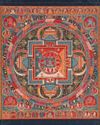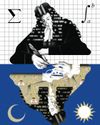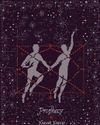
One Sunday in early October, T had lunch at an outdoor restaurant on Andriyivsky Descent, in downtown Kyiv, with a thirty-seven-year-old American who went by the code name Doc. I'd rented an apartment on the same cobblestone street back in March, while the Ukrainian military was repulsing a Russian assault on the city. At the time, the neighborhood had been deserted, and a portentous quiet was broken only by sporadic explosions and whining air-raid sirens. Now Andriyivsky Descent was thronged with couples and families promenading in the autumn sun. Local artists sold oil paintings on the sidewalk. A trumpeter and an accordionist played for tips. Doc sipped a Negroni. Longbearded, square-jawed, and barrelchested, he wore a green tactical jacket and a baseball cap embroidered with the Ukrainian national trident. A thick scar spanned his neck, from a bar fight in North Carolina during which someone had sliced his throat with a box cutter. Toward the end of our meal, an older man in a leather fedora approached our table. International Legion?” he asked, in accented English. I pointed at Doc; the man extended his hand and told him, I just wanted to say thank you.”
Doc scrutinized his glass, embarrassed. After the man left, I remarked that such recognition must feel good. It feels weird,” Doc replied. He'd been a marine in his twenties, and had fought, as a machine gunner, in Iraq and Afghanistan. It had always made him uncomfortable when American civilians thanked him for his service. When his contract ended, in 2011, he'd been eager to put war behind him. Tt was a hard cut,” he said. I was never going back.” Shortly after being discharged, he moved from North Carolina to New York City, where he’d been accepted at Columbia University. Using the G.I. Bill, he majored in computer science, with a minor in linguistics. He did two summer internships at Google, and when he graduated the company hired him full time.
This story is from the January 02 - 09, 2023 (Double Issue) edition of The New Yorker.
Start your 7-day Magzter GOLD free trial to access thousands of curated premium stories, and 9,000+ magazines and newspapers.
Already a subscriber ? Sign In
This story is from the January 02 - 09, 2023 (Double Issue) edition of The New Yorker.
Start your 7-day Magzter GOLD free trial to access thousands of curated premium stories, and 9,000+ magazines and newspapers.
Already a subscriber? Sign In

MEAN TIME
“Hard Truths.”

ENLIGHTEN ME
The secret beauty of mandalas.

THE BEST OF THEM
His was a genius for the ages. Will Gottfried Leibniz ever get his due?

DEATH CULT
Yukio Mishima’ tortured obsessions were his making—and his unmaking.

Prophecy
The night of Dev’s twenty-second birthday, he was invited to sit with the elders after dinner.

A TALE OF TWO DISTRICTS
Lauren Boebert and Colorado’s red-blue divide.

THE TIKTOK TRAIL
Andean migrants draw others to the U.S. with videos depicting themselves as living the American Dream.

LOVE AND THEFT
Did a best-selling romantasy novelist steal another writer's story?

OUR NEW TWO-FACTOR AUTHENTICATION SYSTEM
Our two-factor authentication system is expanding because text messages and e-mailed codes are becoming less secure. Also, we’re committed to making sure your log-in process is more of a hassle than it needs to be.

STILL PROCESSING
Why is the American diet so deadly?